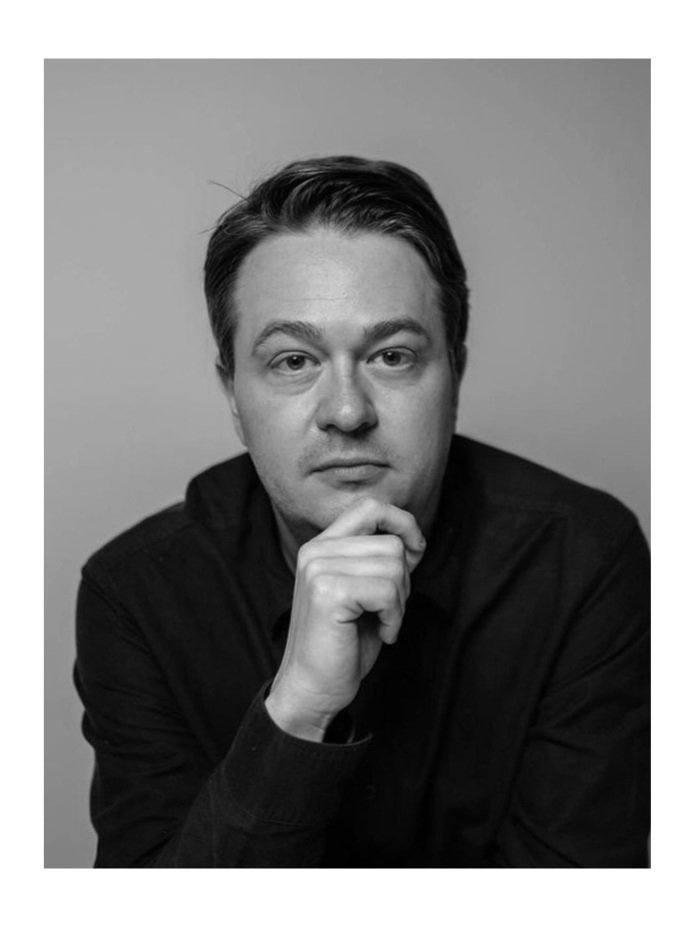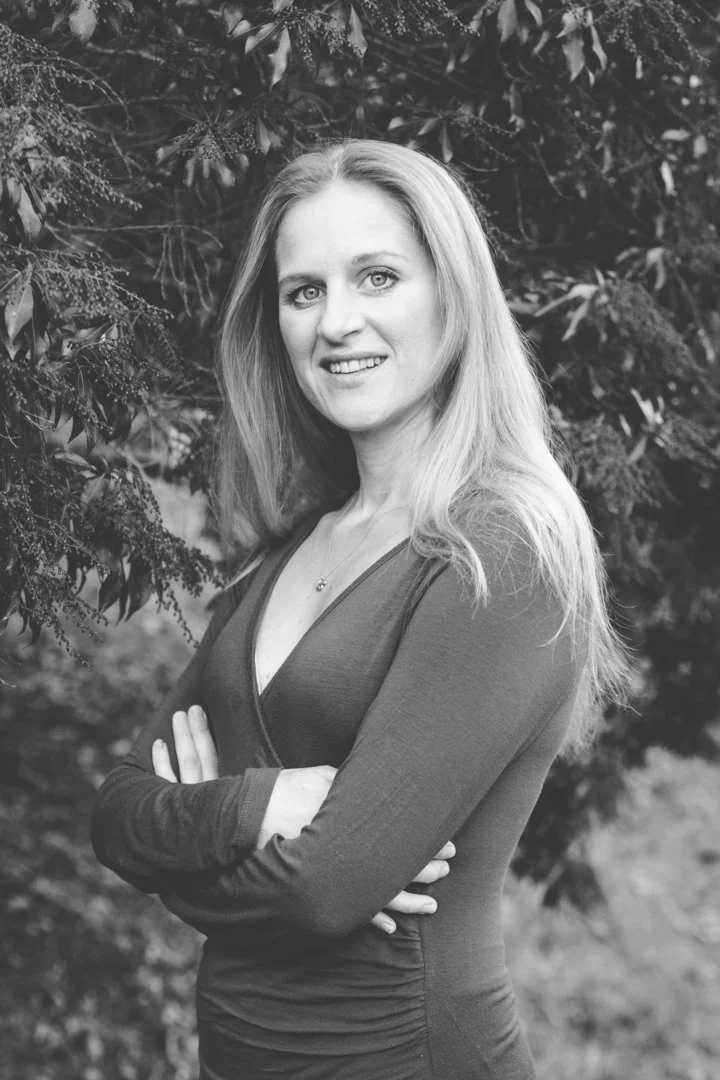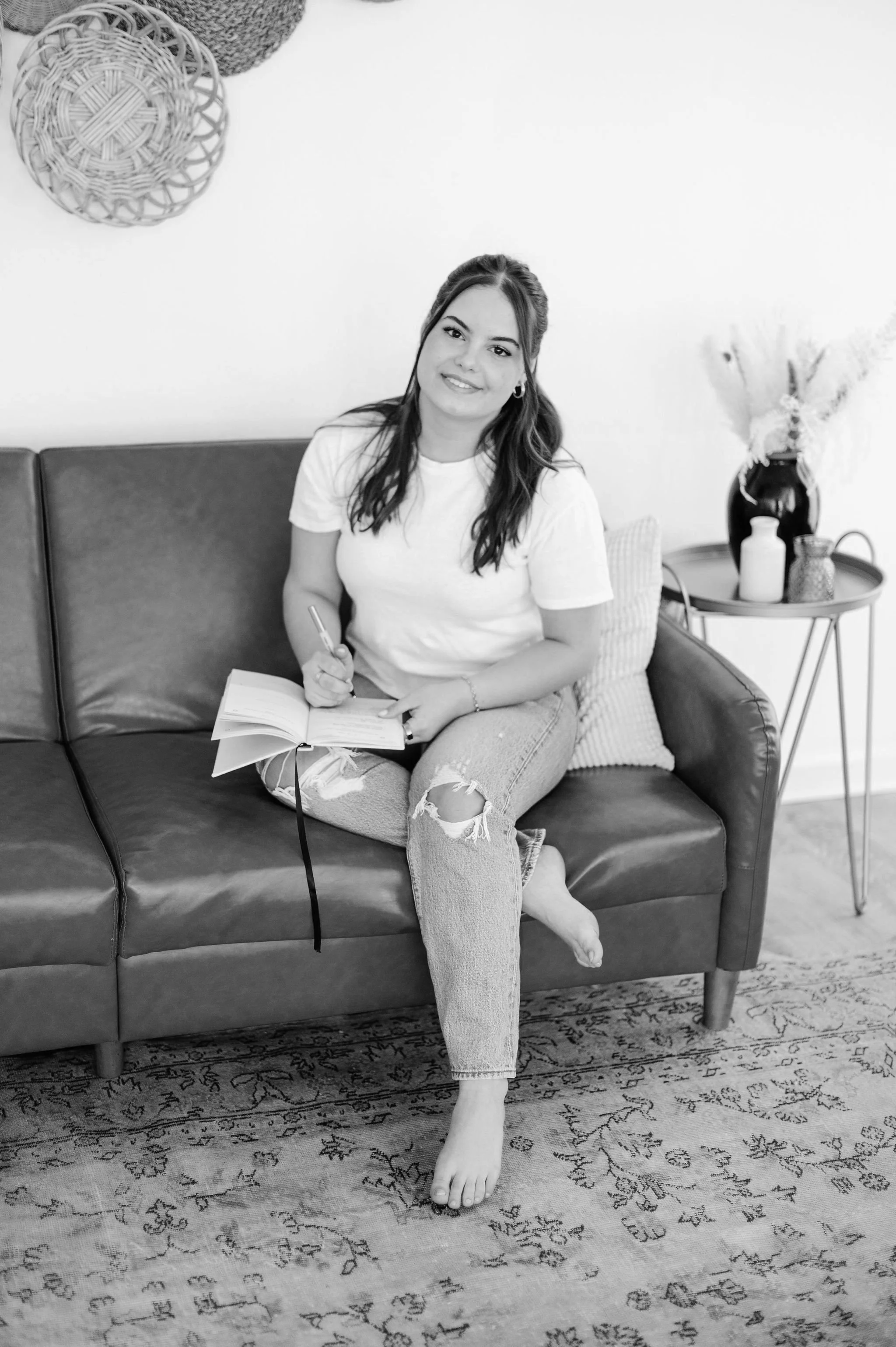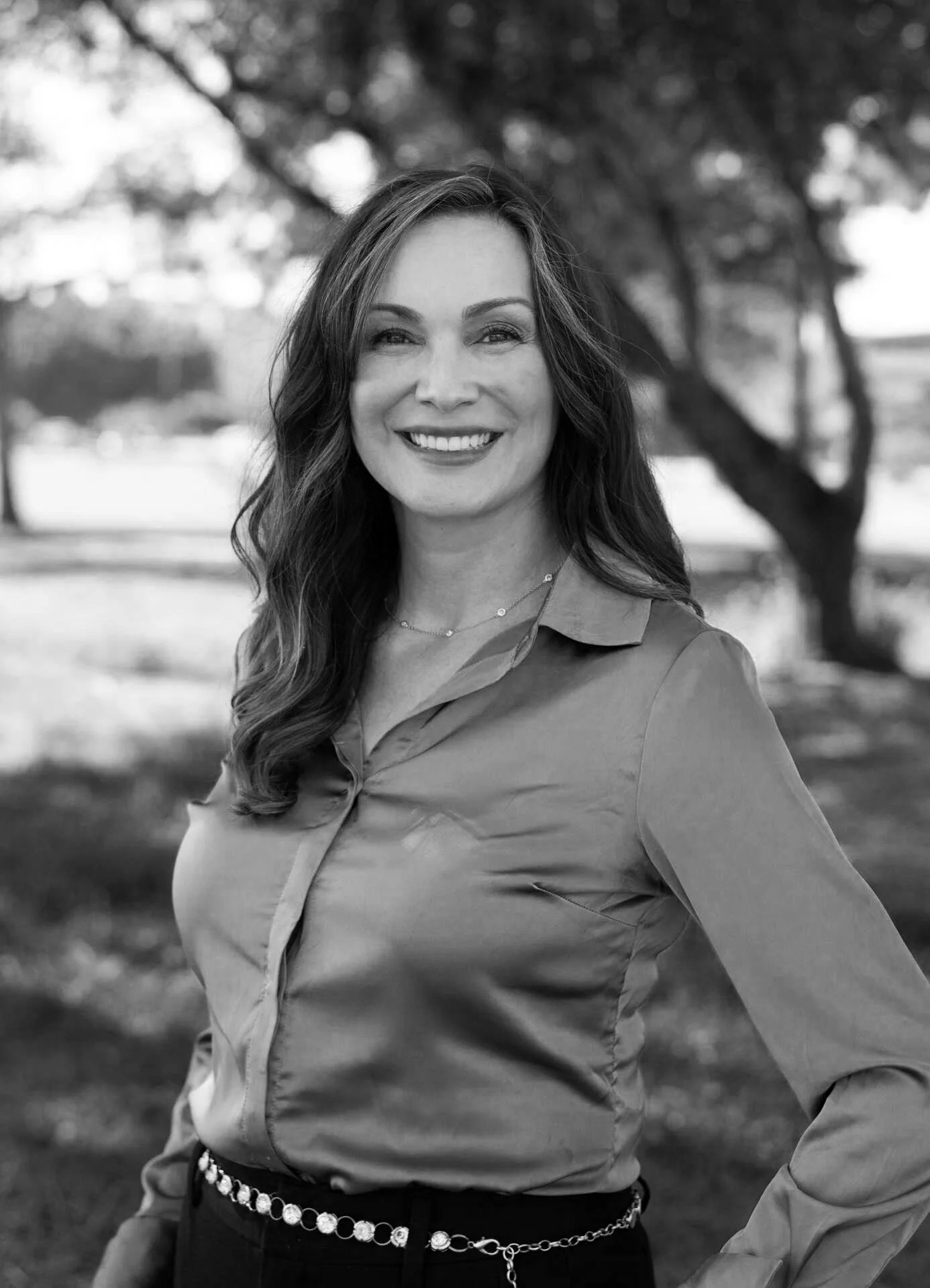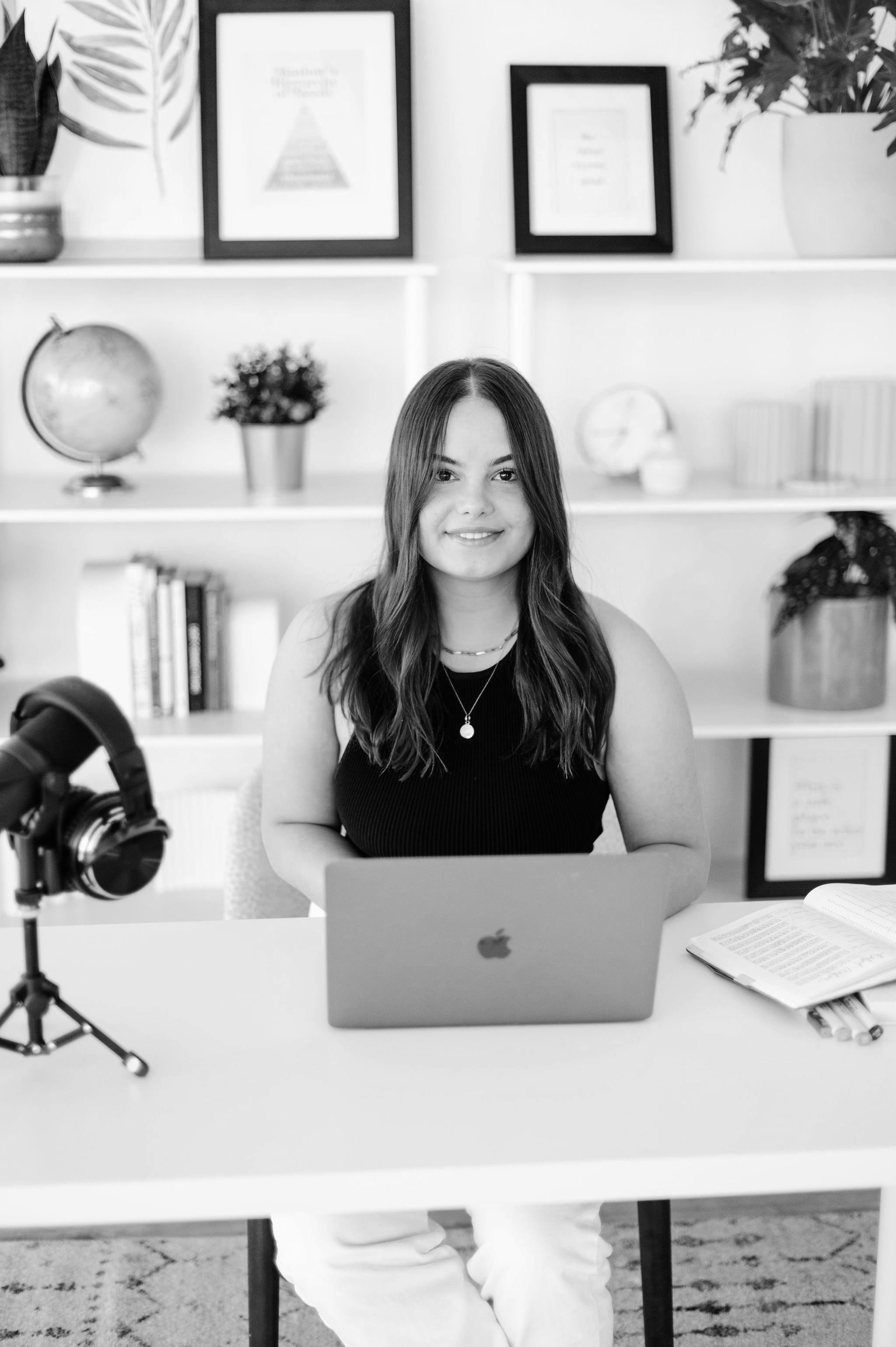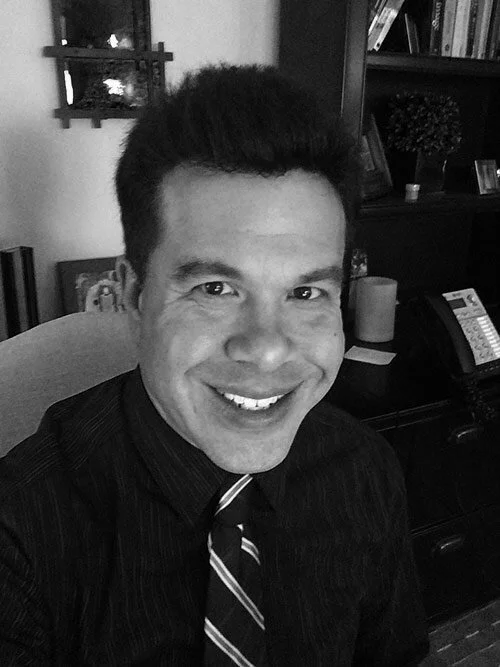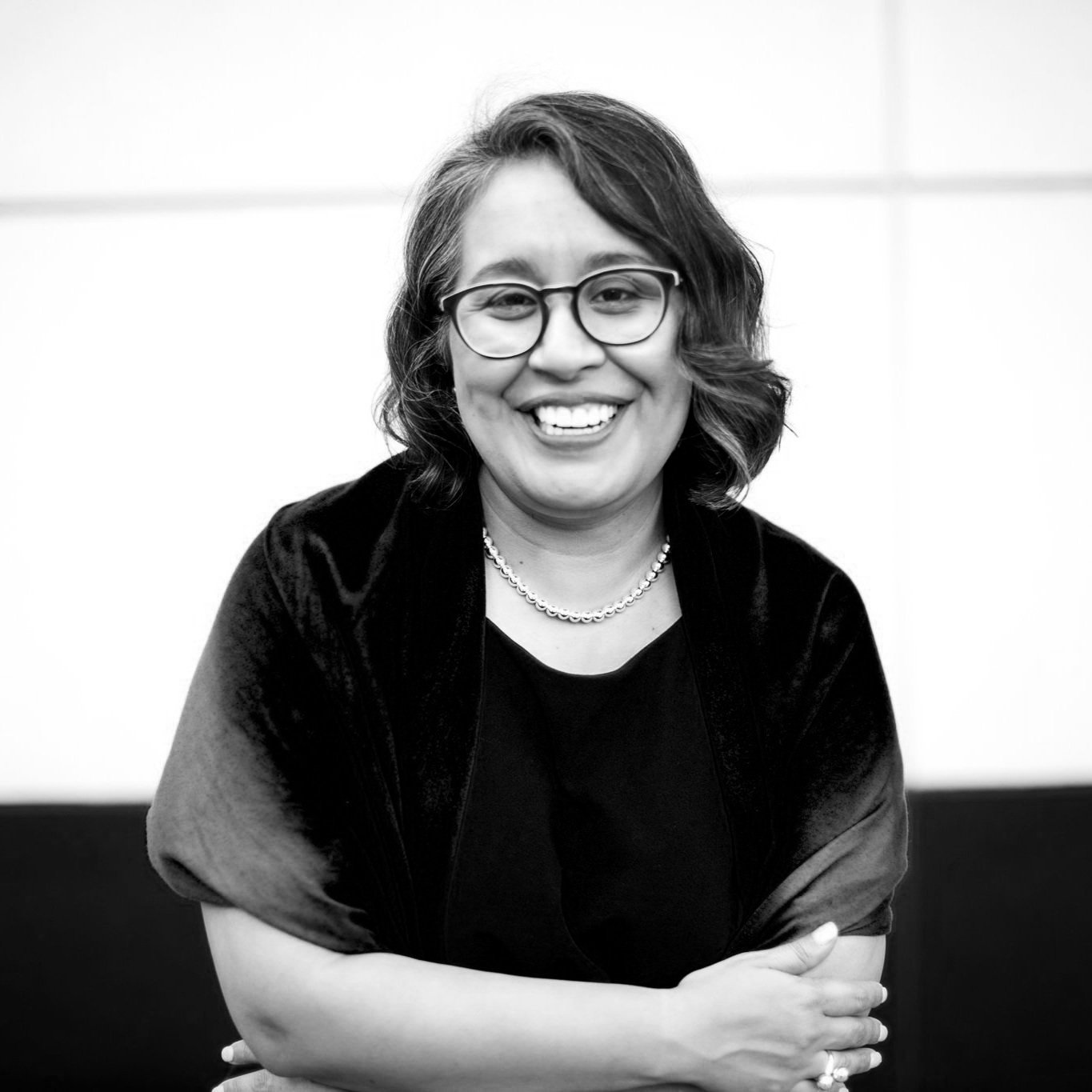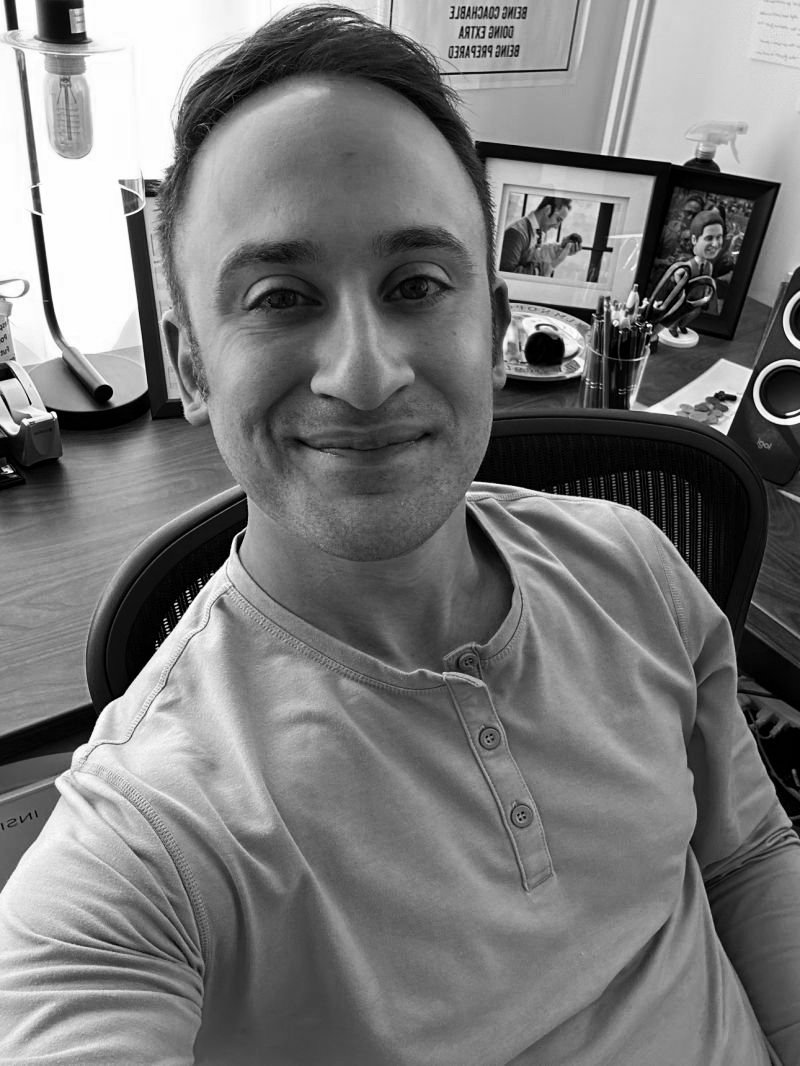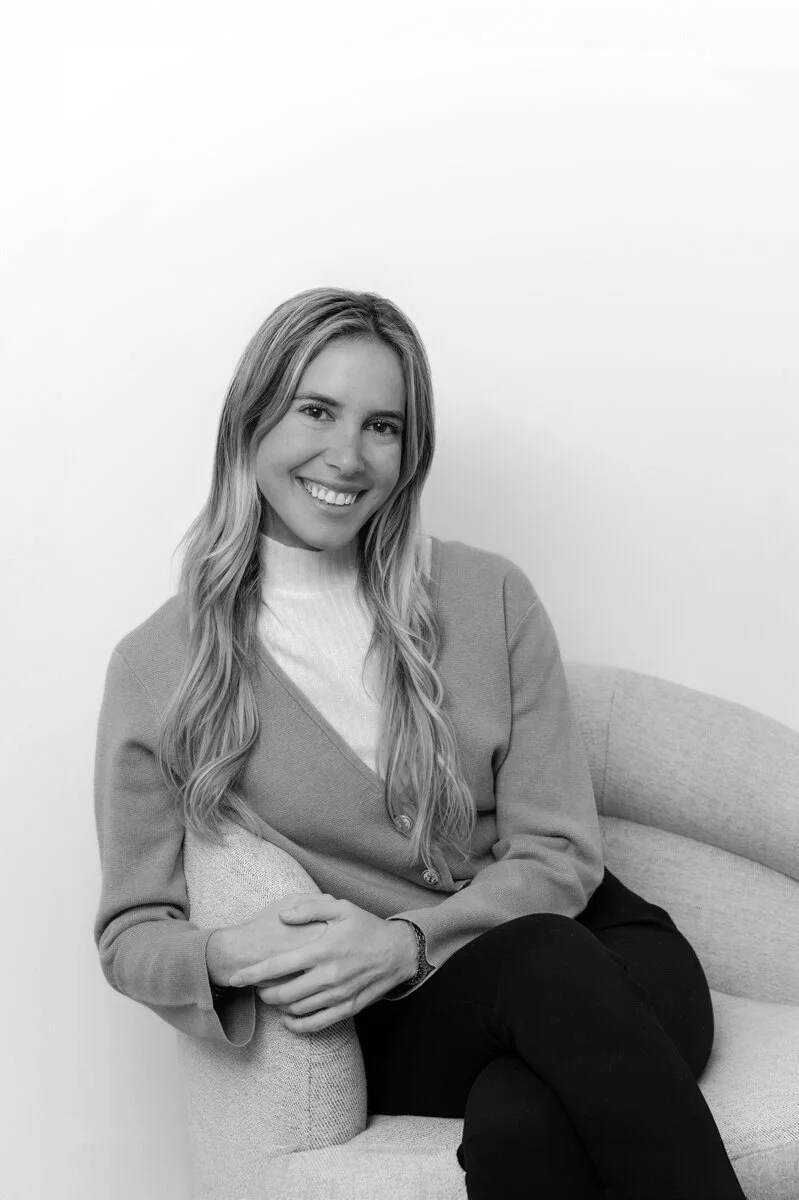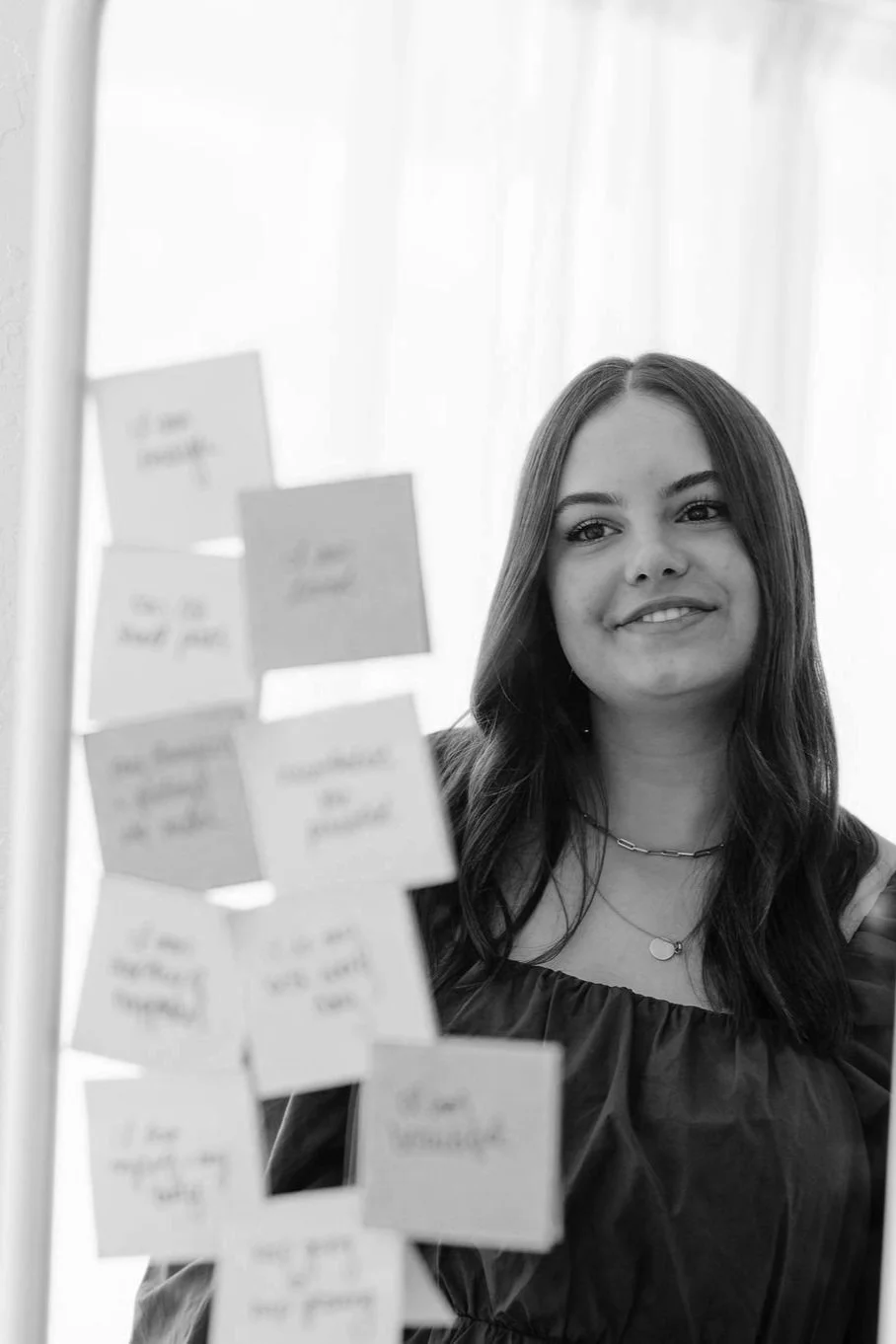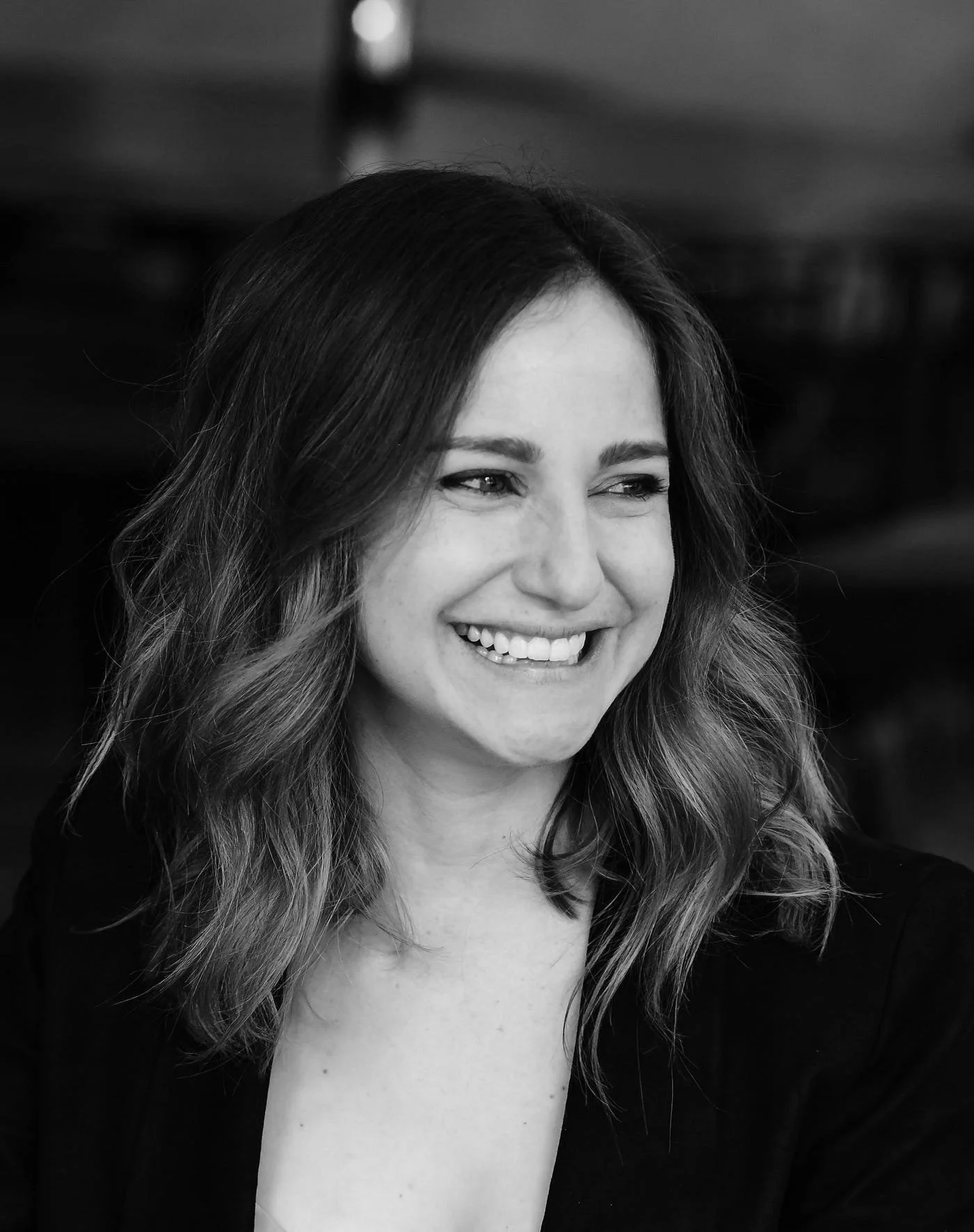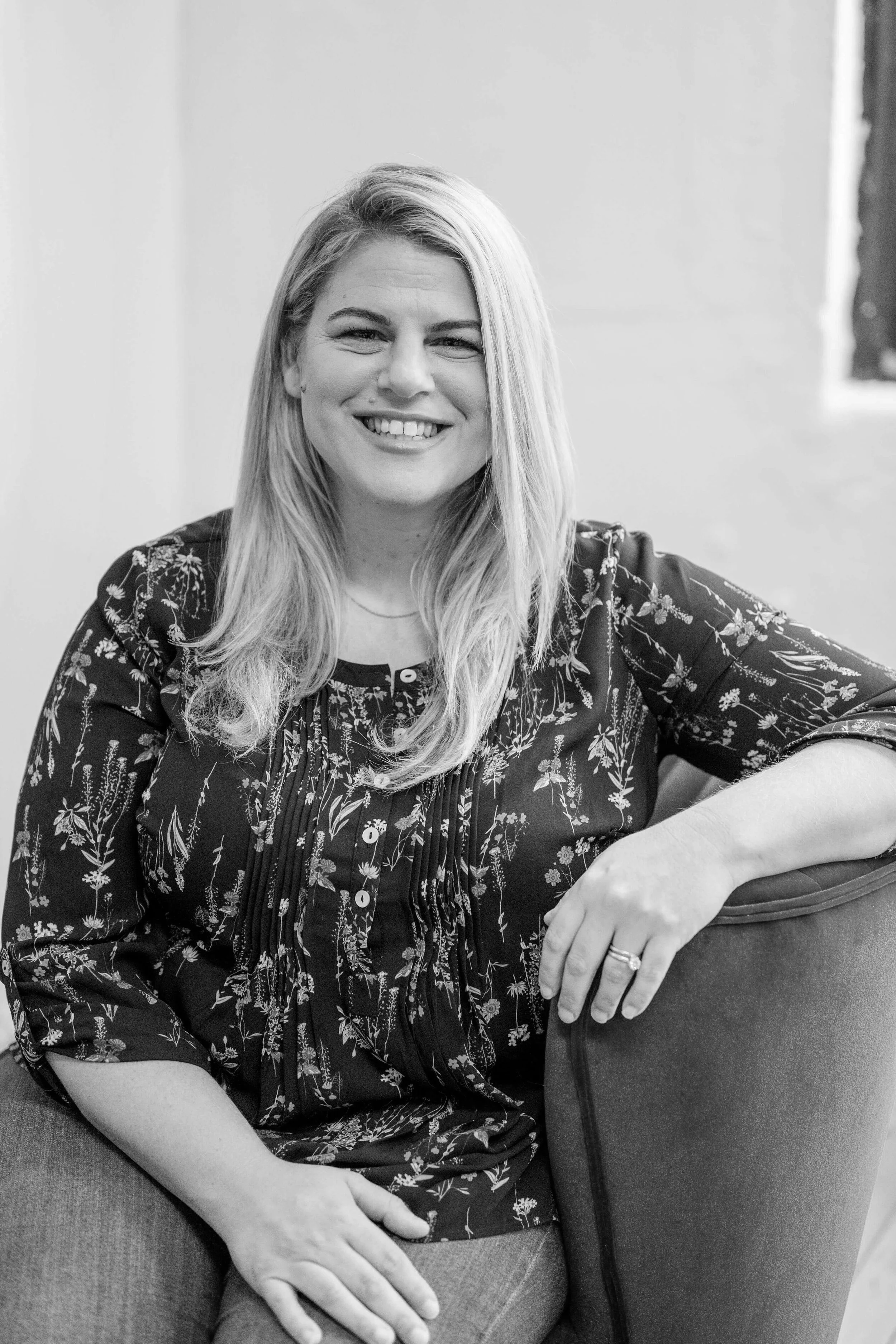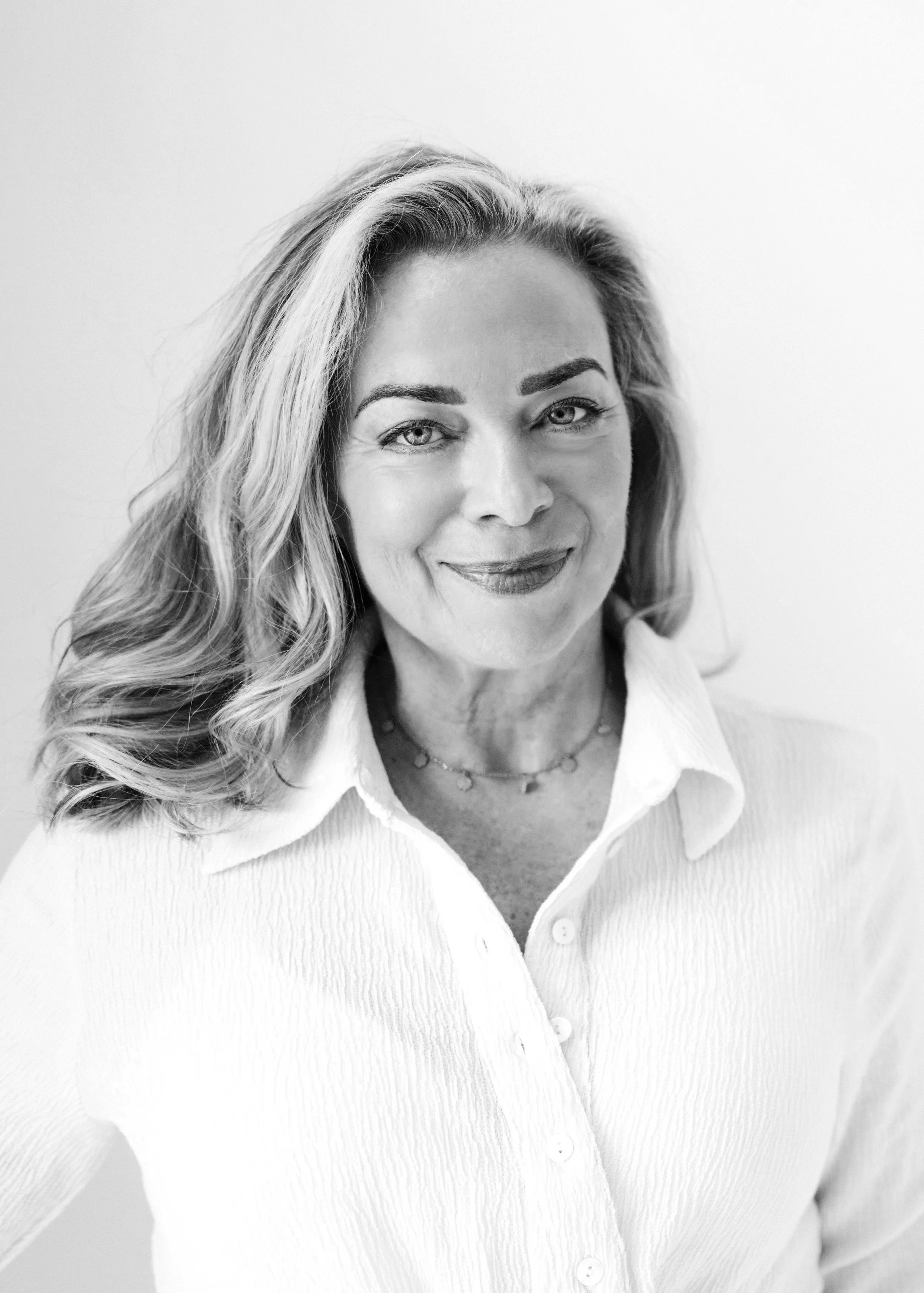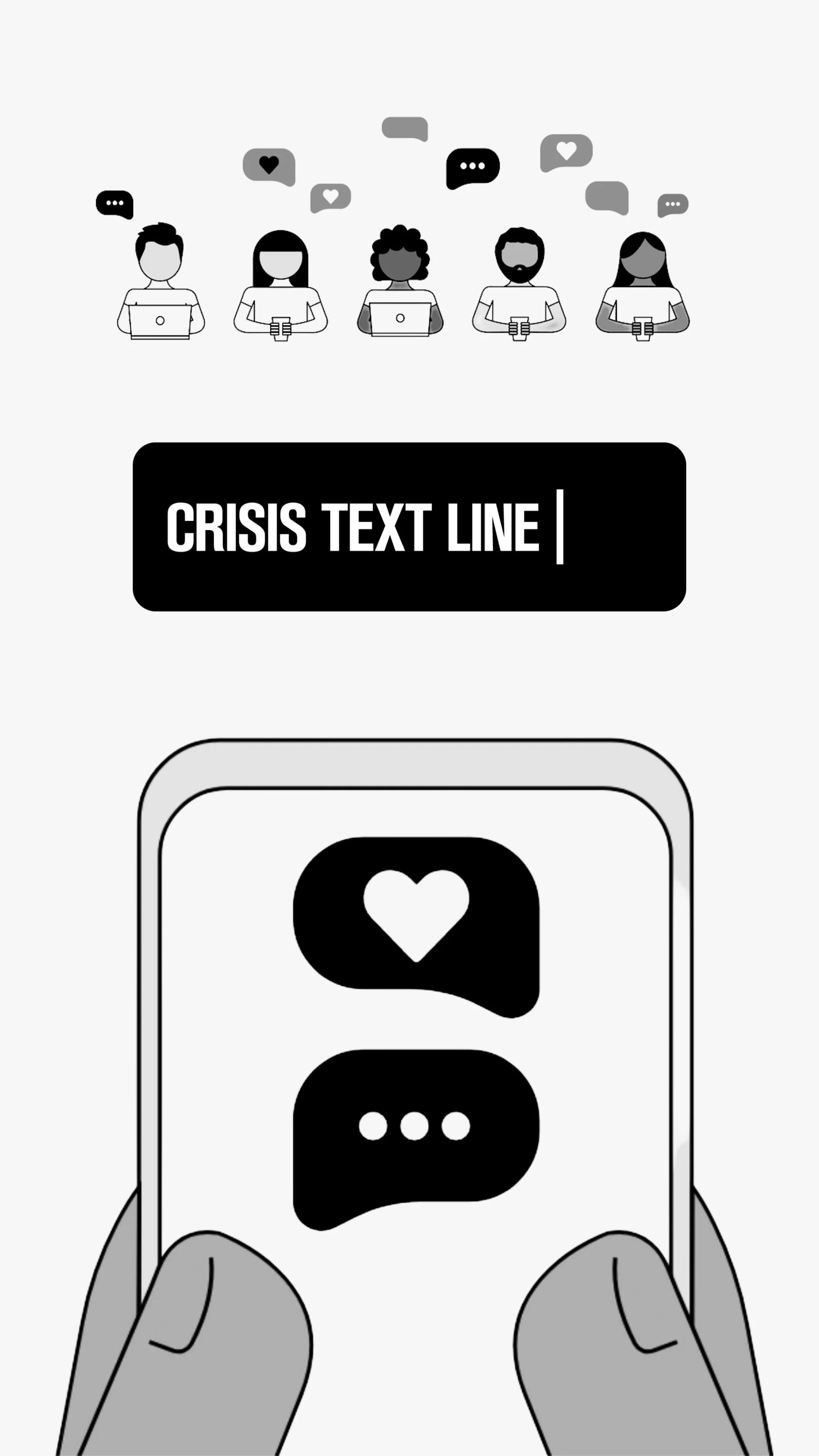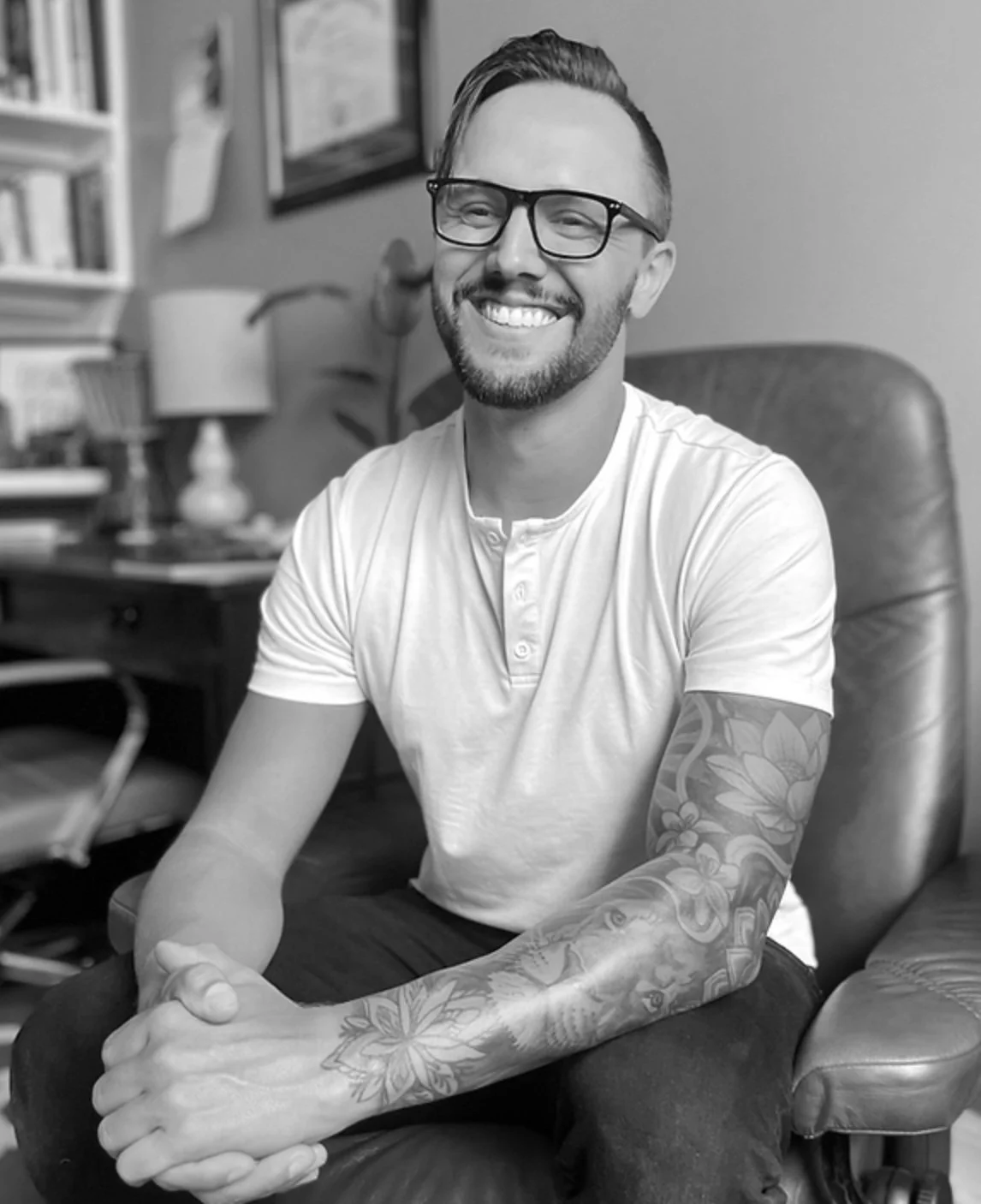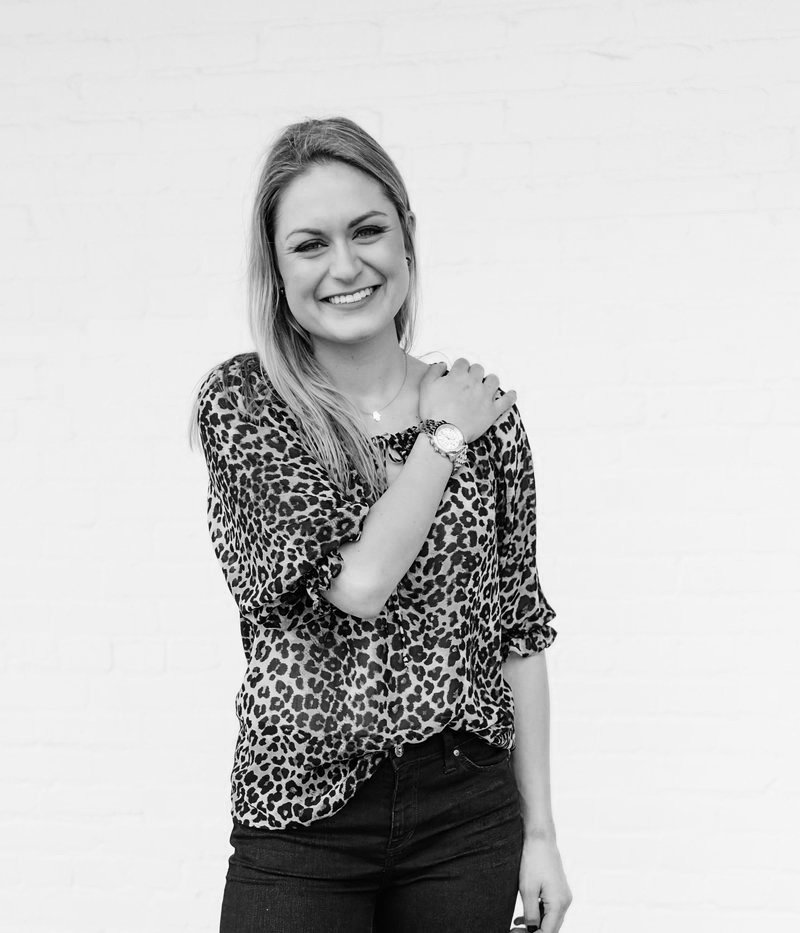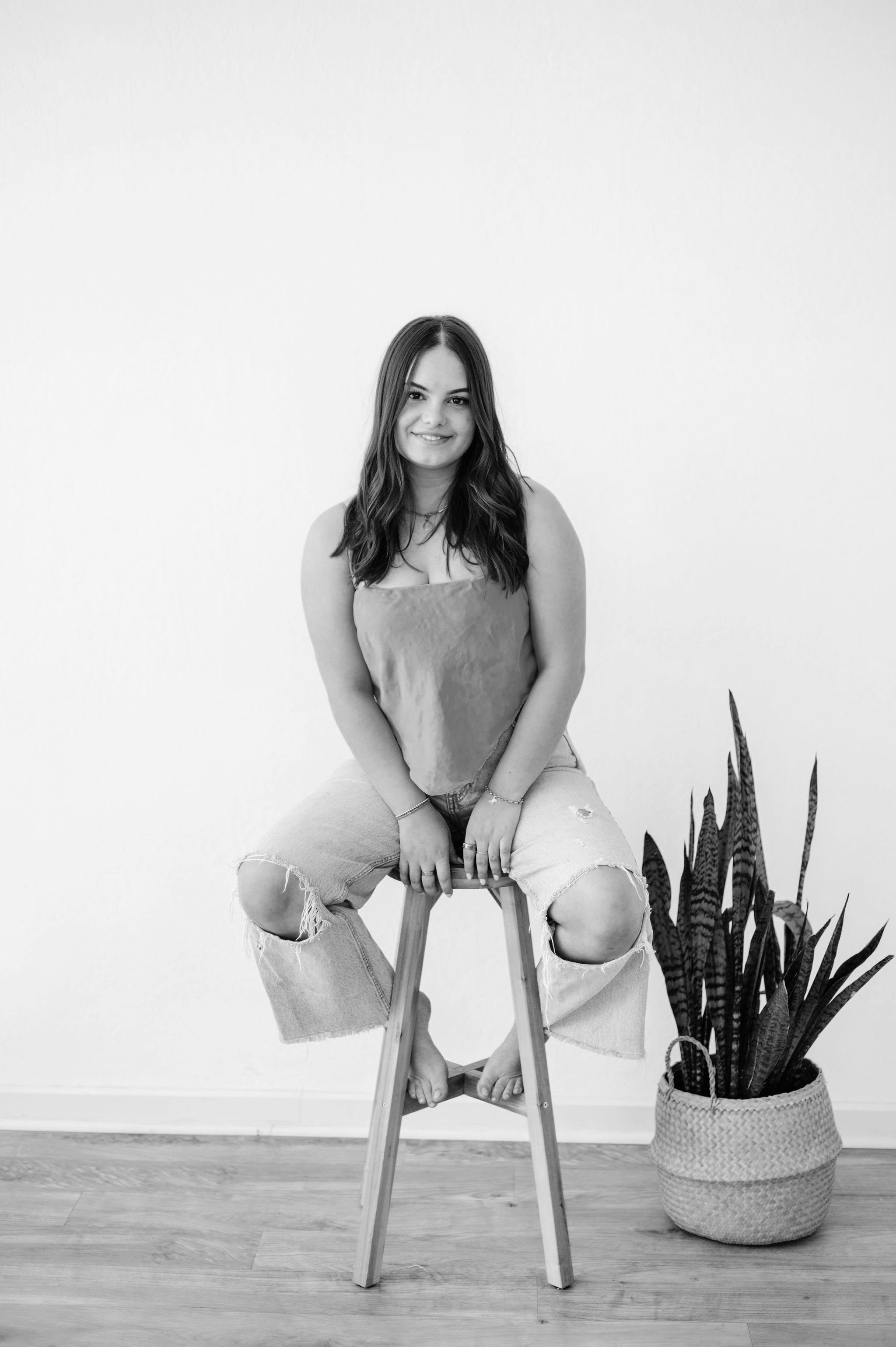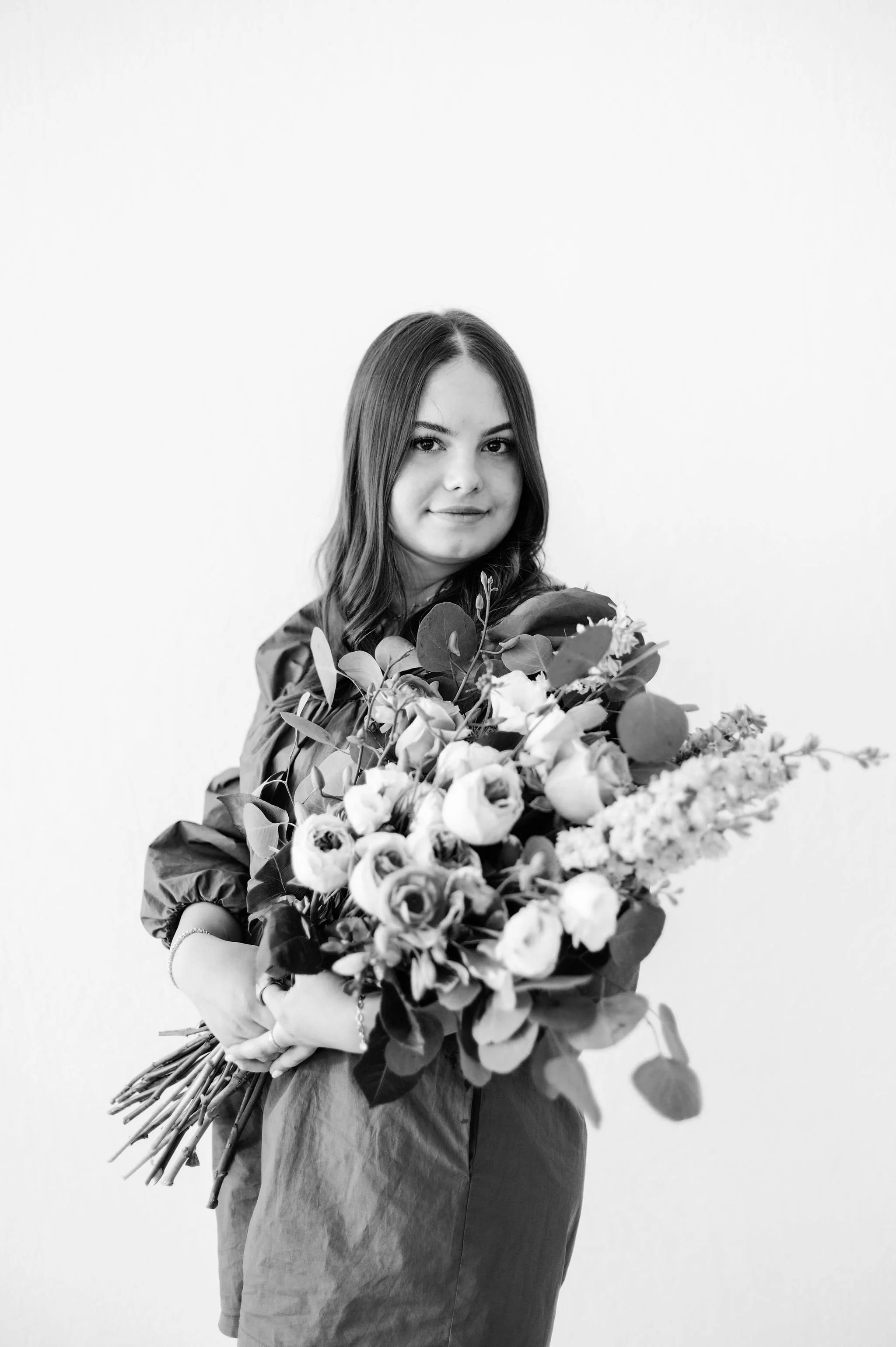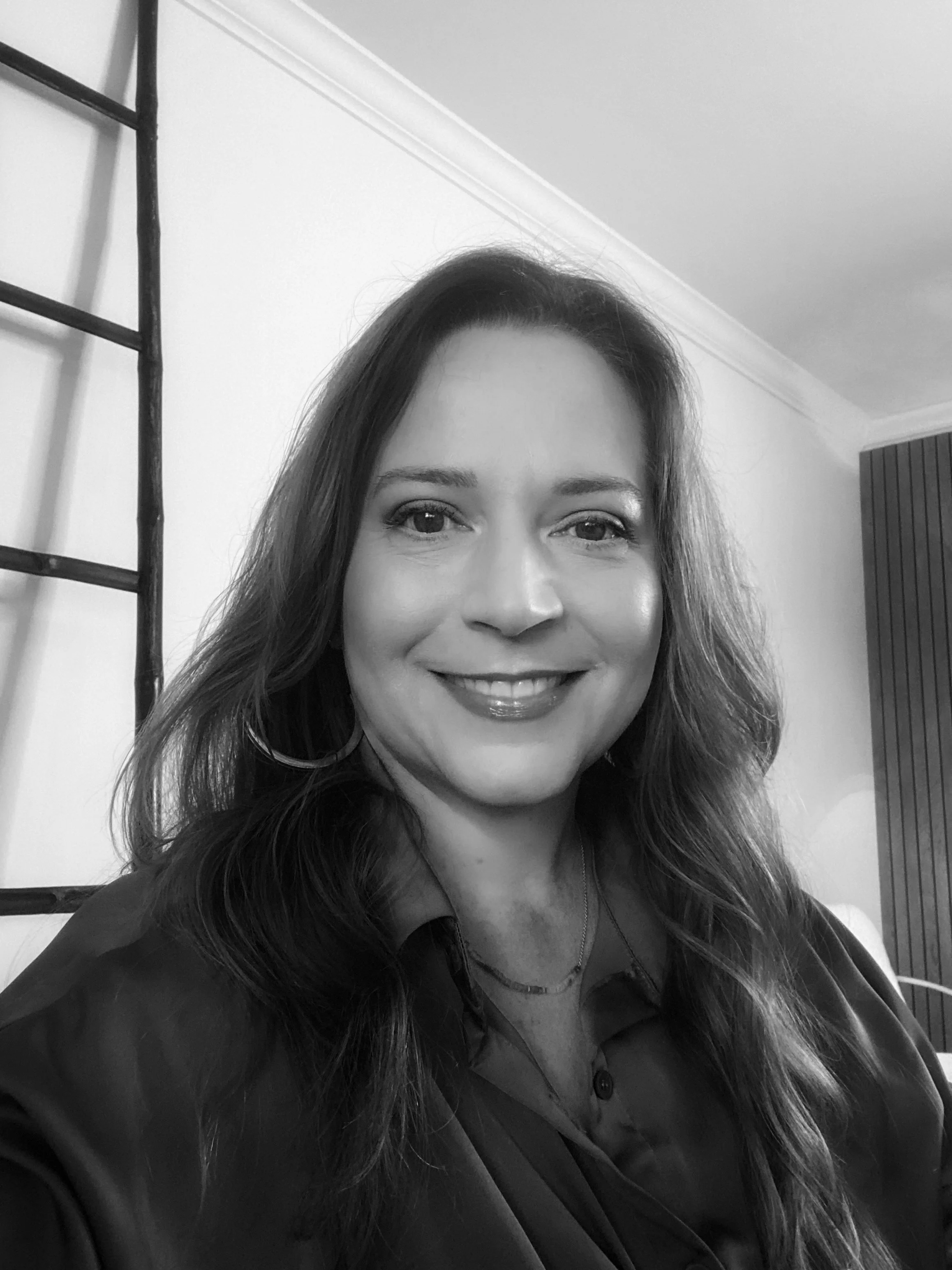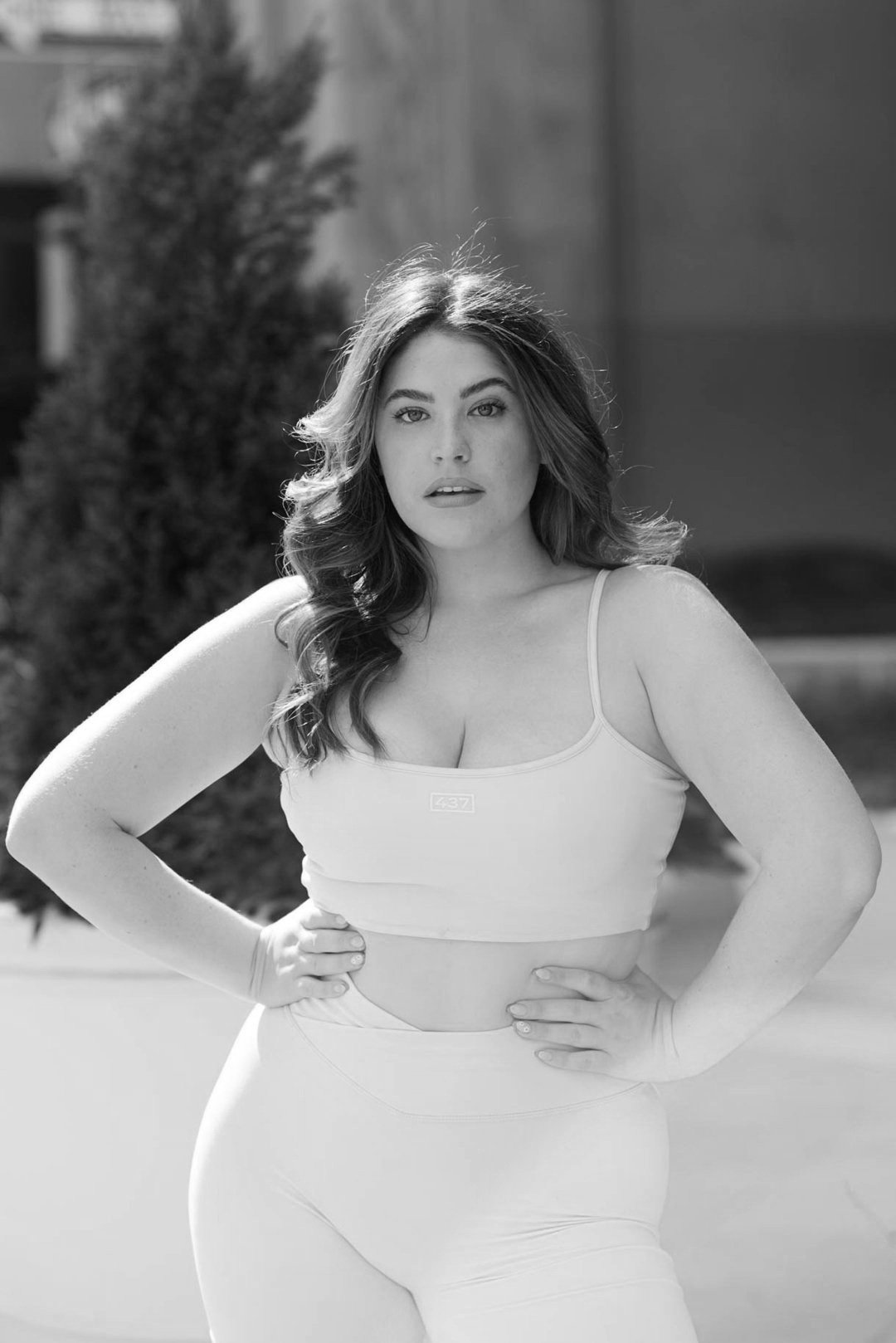142. ADHD Explained: Advice for Teens & Adults with ADHD feat. Kristen Carder
listen to this episode:
Tune in and subscribe on your favorite platform: Apple Podcasts | Spotify | Stitcher | Google Play | Radio Public | PocketCasts | Overcast | Breaker | Anchor
Today's guest is Kristen Carder— an ADHD expert, top podcast host, and internationally-recognized mindset coach for adults with ADHD. In this episode, we discuss differences between presentations of ADHD in adults, children, and teens, the most common symptoms of ADHD, how parents can best support their children and teens with ADHD, the ADHD spectrum and why certain people are under-diagnosed, advice for someone who has recently been diagnosed with ADHD, difficulties that students with ADHD can face at school, resources for people looking to learn more about their ADHD diagnosis, and opinions on popular online discussions about ADHD.
Kristen's Instagram: https://www.instagram.com/i.have.adhd.podcast/
Mentioned In The Episode…
+ ADHD 2.0
SHOP GUEST RECOMMENDATIONS: https://amzn.to/3A69GOC
Episode Sponsors
🛋This week's episode is sponsored by Teen Counseling. Teen Counseling is an online therapy program with over 14,000 licensed therapists in their network offering support with depression, anxiety, relationships, trauma, and more via text, talk, and video counseling. Head to teencounseling.com/shepersisted to find a therapist today!
About She Persisted (formerly Nevertheless, She Persisted)
After a year and a half of intensive treatment for severe depression and anxiety, 18-year-old Sadie recounts her journey by interviewing family members, professionals, and fellow teens to offer self-improvement tips, DBT education, and personal experiences. She Persisted is the reminder that someone else has been there too and your inspiration to live your life worth living.
a note: this is an automated transcription so please ignore any accidental misspellings!
Sadie: [00:00:00] Welcome to She Persisted. I'm your host, Sadie Sutton, a 19 year old from the Bay Area studying psychology at the University of Penn. She Persisted is the Teen Mental Health Podcast made for teenagers by a teen. In each episode, I'll bring you authentic, accessible, and relatable conversations about every aspect of mental wellness.
You can expect evidence-based, teen approved resources, coping skills, including lots of D B T insights and education in. Each piece of content you consume, she persisted, Offers you a safe space to feel validated and understood in your struggle, while encouraging you to take ownership of your journey and build your life worth living.
So let's dive in this week on She persisted.
Kristen: I coach so many people with adhd and the ones with the milder cases often have a hard time accepting their d. Because they feel like, well, I don't have it as bad as so-and-so.
but , it for sure is a spectrum. And no matter where you fall on that spectrum, you [00:01:00] deserve support. You deserve treatment. You deserve to reach out for help because, , all this treatment and support does is level the playing. It doesn't give you a leg up, it just levels the playing field so that the starting line is where you're starting and not way, way.
Hello, hello and welcome back to She Persisted. If You're New Welcome. I'm Sadie. I'm the host of She Persisted.
I'm from the University of Pennsylvania studying psychology,
I started Sheep Persisted after going to a year and a half of intensive treatment for severe depression and anxiety. I'm really trying to create the resource that I wish I had when I was struggling because so many teens and young adults struggle with mental health. It's not talked about enough. There aren't enough resources for teens by teens, so that's where I come in.
And today's episode is a very important topic and one that I know you guys are going to like, because one of my most downloaded episodes is about H adhd. So we're doing almost like a part two.
We're following up, we're diving more into adhd, adult adhd and what you can do to manage H adhd and our [00:02:00] expert today that we're looping into this con is Kristen Carter. She is an ADHD expert, top podcast host and an internationally recognized mindset coach for adults with adhd.
What is really unique is that Kristen works with adults with adhd. A lot of the time we hear about ADHD for the context of kids, and they get diagnosed in childhood, but there are so many adults that realize they have ADHD later on in life and then don't have the skillset to navigate this.
So this is where Kristen comes in. She has experience struggling with ADHD herself which she touches on in this episode, she has over 10 years of experience studying ADHD and teaching her clients evidence-based skills to help them navigate adhd, be effective in coping with the symptoms. And we also talk about how to recognize if you do have ADHD symptoms, that not everyone is talking about symptoms that are more common in an adulthood for teens and especially in women.
I'm so excited for this episode. I left this conversation just in awe of Kristen and all of the insight that she had. I immediately [00:03:00] went to my siblings and was like, you have to listen to this episode when it comes out because anyone with ADHD can benefit from this conversation.
So send it to a friend or family member that you know that has ADHD or know someone with adhd or wants to support someone with adhd because this episode has a ton of info and taught me a lot as well. So with that, let's dive in.
Sadie: Thank you so much for joining me today, Kristen. I'm so excited to have you. And she persisted and to talk all things
Kristen: a D H D. Thank you for having me. I can't wait. Of
Sadie: course. So I'd love to start with your background and why you decided to specialize in A D H D and what got you started working in the mental health.
Kristen: Hmm. So I have a D H D myself, and about 15 years ago, I own a learning center in my hometown. And, , I just loved working with students who had h adhd, but even more than that, I loved talking to their parents, and I loved helping their parents find [00:04:00] resources because, especially at the time, 15 years ago, there was not much available for adults with adhd.
It was really considered a childhood disorder. And, , the more that I kind of went down that rabbit hole of helping adults with adhd, the more I realized that we really are an underserved community. There is such a huge segment of the population of adults with h d who are just underserved. And so I started my podcast, , at the very beginning of 2019.
And. Have never turned back since I, , have been coaching since then and have absolutely loved working with adults. It's the best.
Sadie: I'd love that. , my first thing that I wanna ask you that you just touched on is the difference between ADHD and adults and kids. And when you kind of see that shift in presentation, so, What can listeners be aware of, or even parents of, of teens?
, and the difference in [00:05:00] presentations. And then when that you kind of see that shift between childhood presentations and more adulthood presentations of h
Kristen: d. Yeah. You know, we don't do a great job in the mental health field right now supporting adults with D H D, and that even goes down to the diagnostic process.
So the DSM five was created. The specific criteria around, , diagnosing A D H D is created for children. So there is no criteria right now, , for diagnosing adults. They just use the criteria that they have for children, which is really just a big fat shame if you ask me. And I think that for most people we have a, , stereotypical stigma in our head of what ADHD looks like, which is like a little white boy in the classroom, kind of bouncing off the walls, maybe being a little, , you know, loud with the teacher and interrupting his classmates.
, but really a d h ADHD is so much more than that. And so [00:06:00] if, , someone in their teens is struggling, Disorganization, chronic stress, chronic overwhelm, , inability to manage things and, , you know, Be able to kind of like juggle all of the balls, so to speak. Those are really good things to look out for because, , so much of what children have to go through their parents help them.
It's very age appropriate, it's very developmentally appropriate for a parent to help a kiddo remember their homework. , you know, make sure the forms are filled out, all of that. But as the support system is lessened because. Person is out of it. developmentally, that's when usually things start to fall apart.
You know? So if it's not age appropriate for your mommy to be like cleaning your room anymore and now your room is a disaster. Mm-hmm. Like that is a really, one of those things that you can look for. So, , for me personally, that looked like. Forgetting shifts at work constantly. I could [00:07:00] never keep a calendar.
I could never keep a schedule. I could never just keep things straight. My car was always trashed. My room was always trashed. I couldn't, I never had like a pencil in class. I was always the one that was like, can I borrow a pencil? , I would sit in the classroom and watch my friends fill out their planners.
And I w I remember so distinctly thinking, how in the world are you, like color coding that and writing everything down. Meanwhile, everything was like a dumpster fire in my backpack. , so those kinds of things, , while obviously not diagnostic criteria can really give you some red flags as to like, there might be something deeper going on.
Sadie: Mm-hmm. That's so interesting and I think very helpful for teens to be aware of, especially if they didn't go through that diagnostic process as a kid, or they didn't necessarily have an awareness of those childhood symptoms, like you mentioned, because their, maybe their parents did jump in and offer more support.[00:08:00]
For parents, is it effective to offer that extra support or do you find with adults, it's then like, oh my gosh, but then you don't have these skills or you didn't know early enough, so now you're learning the skills later in life. Like for parents listening, what are your thoughts? If there's either a teen that is undiagnosed or
Kristen: diagnosed, That's such a beautiful question.
So I would first say that a diagnosis is so helpful because it gives you information, it just allows you to see through a much clearer lens what's going on, , and the root cause of all of the obnoxious symptoms that are coming up. Because that's the thing with ADHD is that the symptoms are really just kind of.
They're just really annoying. And another thing about it that is tricky is. Every single human struggles with organization from time to time. Every single human struggles with emotional dysregulation from time to time. [00:09:00] So the things that are actual diagnostic criteria for A D H D are things that the majority of the human race struggle with from time to time.
But the difference is for an A D H D or those symptoms are debilitating. Those symptoms are keeping them from reaching their potential. Those symptoms are keeping them from really being the fullest version of themselves. And so if you can, , I always, always, always encourage people to get a diagnosis even if you don't plan to medicate.
So even if you're someone who's like, my child will absolutely never take a medication, it's. Helpful to have the information because information is power and it can show you where to give support. Yeah, it can show you where to give the structure and it can help you. Because I'm a parent, I have three kids.
My oldest two have, , been diagnosed with h adhd. It's very hereditary. and it helps me as a parent to understand they're [00:10:00] not being, defiant. They don't just need to try harder. They actually need support. So then I can ask myself, okay, what support can I put in place so that they can function beautifully?
Mm-hmm. You know, you asked like, , should you support or should you kind of like teach them the skills? And I would say it's both. But as a very high functioning now adult with adhd, I have so much support in place, so much support. , Dr. Russell Barkley calls it scaffold. We have to have that scaffolding of support so that we can really move forward, , really without having to worry about all of the organization, all of the problem solving, all of the time management, all of those things that for the typical brain, it just comes naturally and for our brains, it doesn't.
Sadie: I love that and I, I'm definitely gonna ask you about what those specific things were, but I loved what you mentioned about having a diagnosis, because especially once you get into high school and college mm-hmm. That is what will allow you to get [00:11:00] accommodations. Yeah. Even if, like you mentioned, you're not medicating if you don't have a diagnosis.
You can't get those accommodations, whether it's extra time or , any other scaffolding like you mentioned, that is effective for you to stay organized and focused. That is really the key, and it can be so difficult to go through that process if you have a test next week and you're like, I really am struggling with this, whatever it is, the subject.
Mm-hmm. Or the way that this teacher is structuring the test your study system for the test, it's not like an overnight thing. So I a hundred percent agree with you to have that as an option if you need it. Is a really, really effective resource. Yeah. Would you say that there is a spectrum of ADHD with less and more intense cases, or is it like everyone just has the similar intensities of presentations?
Kristen: It's definitely a spectrum disorder and that again, can make it very tricky to diagnose. It often goes misdiagnosed or undiagnosed, especially in women and girls. , and it is a spectrum disorder. It is, you [00:12:00] know, there. Are some people with A D H D whose symptoms are debilitating. , and it is thankfully in America covered under the Americans with Disabilities Act.
And so you can get, , accommodation and assistance with that. , and then there are other people with more mild cases. And you know, I coach so many people with adhd and the ones with the milder cases often have a hard time accepting their d. They usually are struggling to really embrace the diagnosis because they feel like, well, I don't have it as bad as so-and-so.
, but it, it for sure is a spectrum. And no matter where you fall on that spectrum, you deserve support. You deserve treatment. You deserve to reach out for help because, , all this treatment and support does is level the playing. It doesn't give you a leg up, it just levels the playing field so that the starting line is where you're starting and not way, way.
Yeah.
Sadie: I love that. And I think one of the things about having a more mild [00:13:00] case or less severe symptoms at any point in time is that all, when I think about it, I'm like, this just means that there's a higher likelihood that these skills or scaffolding will work. Mm. Like it's a less of your case, so you're in a great position that when you implement these things, They will likely work because it's working for someone with a really severe case with more intense
Kristen: symptoms.
Yeah, I love that perspective. So what is your
Sadie: advice for someone who's just gotten an ADHD diagnosis and like you mentioned, they're struggling to accept that. What are some common like emotions and thoughts and reasons that it's difficult to accept? And then what is your advice for navigating through
Kristen: that?
Mm. That's a big question. I think, yeah, that if I had like the three step answer for that, it would just be incredible. But it is a very nuanced process because everyone approaches their diagnosis differently. So I have a, a really large coaching program, and when we get people in who are newly diagnosed, some people feel such a huge sense of [00:14:00] relief and valid.
Yeah, they feel like I knew there was something going on. I knew I wasn't just a terrible person. I knew that I wasn't just flawed. I knew there was something going on. And so some people feel so validated and so relieved. And then on the other end of that, , there's people who experience a lot of grief and anger.
You know, there are a lot of adults being diagnosed in their thirties, forties, fifties, 60. Seventies. I mean, imagine being 70 and getting an A D H D diagnosis and thinking about how your life would've been different if you had had that understanding and treatment earlier. So what I like to say to people is, no matter what you experience emotionally when you are diagnosed, it's valid.
And your experience is valid. So if you're relieved and happy, perfect. If you're angry and feeling tons of regret, [00:15:00] perfect. It's supposed to feel this way. , and then the journey of accepting it, it, it can really take a while. You know, there's some flaws in our system when it comes to a diagnosis because a lot of times the, the clinicians, diagnos.
They don't even have a robust understanding of the diagnosis. Mm-hmm. And so it's very hard for a clinician who's had like a class on a D H D, maybe like one class period. Mm-hmm. Or you know, one chapter in one textbook to really help. Educate their patient who is just being diagnosed. And so what I would say is make sure to be your own advocate and do all kinds of research.
There's so much available to us right now, podcasts and , Just research on the internet and so many great books out there. So I would just say like, start doing a deep dive and, and begin to learn more about it. Because [00:16:00] when I first, so I was diagnosed at the age of 21, but it wasn't until I was in my thirties that I really started to research A D H D and read about it.
And when I started reading about it, I was so struck by, , all of the things that I hated about myself were actually just symptoms of H adhd. So the fact that I was late all the time, oh, that's a symptom of H adhd. I didn't know that I was late for this
Sadie: call. I don't have an a s D diagnosis, but I was late for this interview.
Full disclaimer, full disclosure.
Kristen: That's amazing. Yeah. Well, , I have a lot of grace for that because I'm usually the one that's late. I appreciate that. So the fact that I'm like late all the time, or the fact that I interrupt people or that I'm emotionally explosive, like those are actual diagnostic cri.
Symptoms of D H D. And so when I began to uncover that and really accept like, oh, this permeates every area of my life from the boardroom to the bedroom, like that's what I like to say from the boardroom to the [00:17:00] bedroom, it's gonna permeate every area of your life. Then you can begin to kind of forgive yourself for the way that you've shown up in the last decade or two or three, and, and really move forward with a better understanding of who you.
What are some of
Sadie: your favorite resources out there for people that are starting their research process? Whether it's a book podcast, obviously you have your show, which I'll link in the show notes. Mm-hmm. , but what are your favorite things to direct people to if they're starting from ground zero?
Kristen: Yeah, so.
Obviously my podcast is a great resource. It's the top rated podcast for D h D, and I think a lot of people when they first start listening, feel really seen. Yeah. And validated, you know, which I think is really important because it can feel very isolating at first. , Some of my favorite books are, , taking charge of adult d h D by Dr.
Russell Barkley. That's a really good one. D h D 2.0 by Ned Hallel is fantastic. , those two, I would say if, I mean, I could give like a really long list, but that wouldn't be helpful. I [00:18:00] think those two are the best. , I know this sounds really dumb, but like I wouldn't discount. Like TikTok? Yeah, I think a lot of people are learning a lot on TikTok.
I like to joke that I've been studying ADHD way before it was trending on TikTok, and I'm not even on TikTok because I'm a grownup and I just can't handle it. But, , I know that a lot of people are gaining, understanding and acceptance and just more and more knowledge through people sharing their experience on, on social media platforms.
And even though it seems like, well, there could be a lot of like misinformation, there's also really good information out there. And so if you find people that you trust, , you know, well-educated, certified type people. I wouldn't discount that because that could be really helpful.
Sadie: I a hundred percent agree. I will definitely leave all of those in the show notes. I think that's really helpful recommendations to start. Mm-hmm. Because there is so much information out there and it's so overwhelming trying to figure out which direction to begin with. [00:19:00] And I'm sure even when you get a diagnosis, your doctoral big, okay, here's a giant pamphlet, or here's some links for things to look at.
And it's like, okay. This is a lot of information. Yes. And I love that you provided a lot of different mediums to kind of interpret that information and then also some really validating and understanding ways of processing through that diagnosis.
Kristen: Yeah. And you know, a good ADHD coach can help you with that too, and, You know, I struggle with, like, sometimes I'm annoyed that ADHD is so trendy right now, but then also there's a lot of good coming out of it.
And one of the good things coming out of it is there's a lot of coaches being trained, , to support people with d h d. And coaching changed my life and it's changed, you know, thousands of people that I've worked with. I know that coaching can be an amazing medium for those who have access to, to the funds for it.
Is so powerful to have someone else kind of take your hand and lead you through a journey. It's very, very validating. I [00:20:00] think so many adults with D H D have felt isolated for so long and, and feel or experience a lot of shame. And a really good coach can help you kind of unpack that and, , it's very freeing.
Sadie: Yeah, a hundred percent. ,
Today's episode is brought to you by Teen Counseling. Teen Counseling is Better Health's online therapy program for teens.
They have over 14,000 licensed therapists within their network, and they offer support on things like depression, anxiety, relationships, trauma, and so much more. You guys know that therapy was a huge part of my mental health journey. It's a resource that was absolutely essential for me to recover, maintain my mental health, improve my emotion regulation, distress tolerance, all of the things.
If you would like to try meeting with a therapist or find a new therapist to meet with, you can go to teen counseling.com/she persisted. They offer talk text and video counseling all from your home. So no need to be on a super long wait list to find a therapist. They will also meet you [00:21:00] exactly where you're at with what level of support you're looking for.
To check out teen counseling, you can go to teen counseling.com/she persisted to find a therapist that meets your needs.
Sadie: I'm sure this is a difficult question to answer, but do you have. Ideas or reasons that you've heard from clients and within your community as to why ADHD is so trendy right now? Do you think it's because we spent so much time online, it wasn't as engaging I literally, honestly have no idea.
But what are your thoughts there? Because it really is like blowing up as a hot topic on
Kristen: TikTok. I know it totally is. I I have a couple thoughts about it. I think that, , The statistics right now for the percentage of the population that's diagnosed with adhd, I think is around three to 4% of children are diagnosed.
I believe that that is most likely, , an underdiagnosis. I think there's a lot more people with D H D than have been diagnosed, and I think that goes back [00:22:00] to, , All of the symptoms of A D H D are pesky symptoms or things that people struggle with, you know, every now and again. But now that we have so much access to information and anyone can go and Google the symptoms of A D H D or anyone can go and listen to a podcast on A D H D, there are so many more people advocating for themselves.
There are so many people saying, wait a second, I don't think it's anxiety that I have, or, I don't think it's depression that I have, or, I don't think it's bipolar that I have. I think it's actually adhd. And so there are so many. Adults walking into clinicians' offices with a list of symptoms saying like, I've circled all the ones that I have, and I really think that this is what's going on.
, and so I think it's a result of self-advocacy and I think we're seeing, , an upswing in diagnoses because of access to information that we haven't always had. , and the cynics. And I'm rolling my eyes right now, but the [00:23:00] cynics, you know, will kind of roll their eyes and say like, oh, everyone has adhd, or everyone's on medication.
That's not true. I, I think there are a lot of people out there in the world undiagnosed. There's a lot of people in my family. Undiagnosed. So like there's so many people who have ADHD who just have never pursued a diagnosis. And I think that if everyone were to be evaluated, which wouldn't that be amazing.
Yeah. If that were like a requirement that everyone had a psychological evaluation like by the time you're 30, that would be incredible. Or even just an
Sadie: elementary school likes part of like standardized testing. You also did, why don't we do neuropsych? It would
Kristen: be amazing. On it would be incredible.
, I think we would see so many, I think the. Actual stat is probably around 10 to 15%. Yeah, that's, that's my thought.
Sadie: Which when you think about it, like when people are like, everyone has adhd, 10 to 15% isn't a crazy amount of the population.
No. It's like what, one in four, one in five people have struggled with [00:24:00] depression. That's a much higher percentage. And so I think. to say that every single person has, it really isn't accurate, especially when you look at the numbers. , and even considering how many people might be undiagnosed.
Kristen: Yeah, totally.
Sadie: , so I'd love to kind of give people some recommendations and a toolkit they can Pull from for creating the scaffolding for themselves in their life. Mm-hmm. And trying to cope with these different symptoms and improve their effectiveness and become high functioning and really just set themselves up for success.
So are there a couple different symptoms or areas that you think would be helpful to touch on, whether it's procrastination, maybe it's losing track of time, maybe it's emotional regulation. What would you say are the top three to four areas, , , that people struggle
Kristen: with? You know, it's so interesting.
I would say if I had to pick one that permeated every single area, it would be emotional regulation. Mm-hmm. Because when you talk about procrastination, the reason why we [00:25:00] procrastinate is because of an emotion. Yeah, we're procrastinating because we're feeling dread or shame or boredom or whatever. So I think if I could just be bossy and say, the number one thing to explore is identifying and processing your emotions.
Mm-hmm. That would make you so powerful. , I used to. Feel overwhelmed all day every day. And because of that, I was very, very low functioning. I couldn't hold a job. I yelled at my kids a lot. I could not. Perform at the level of my intellect. So I knew I'm really smart, but my performance is quite low, which is actually a diagnostic.
, you know, that's something that people look for when they're diagnosing h d , and I was constantly stressed and [00:26:00] overwhelmed. Once I learned to manage my emotions, it changed everything for me. Once I learned to allow overwhelm to be in my body without feeling like I had to escape from it, but just really processing it through, once I allowed stress in my body, once, even anxiety, all of these negative emotions that I thought meant that I was doing it wrong.
Oh, if I'm feeling stressed, I'm doing it. If I'm feeling anxious, I'm doing it wrong. No, you're just human. Yeah. You're actually, you're actually doing it right. , if you
Sadie: weren't doing it, it would be really a big problem, right?
Kristen: Yeah. Right. So really, , I think that that would be the one thing that could change everything.
And so, you know, if there's somebody listening who's like, wondering what, what is one thing that I can do? I would say begin to identify how you're feeling in different moments throughout your day. Because I have, , h d [00:27:00] hyperactive type, I am not one that has ever wanted to meditate ever for one second in my entire life.
Like mindfulness sounds like the worst thing in the world to me. Mm-hmm. But, , if you can figure out like what I do as I go for a hike, And I try to tune in to what I'm feeling and so the movement of walking and now, because I am just like a 41 year old woman who does not care, I take weights and I walk.
I love it. The, I'm like the mom of all moms. My kids are so embarrassed. , but like you
Sadie: will do this one day, you'll be doing your arm weights. Okay? So get over it.
Kristen: And sometimes I even wear a fanny pack and then they are fanny pack dying. That's are really
Sadie: functional. That's I think too fit everything. I can get my Kindle and my phone in there like they're, that's crazy.
They're
Kristen: the best. , so I get my little fanny pack on and I get my weights and I go for a hike. , and really trying to tune into my body and let the emotion process allows [00:28:00] me to function, , so much better. And so, , another thing that is really, really, really helpful and also helpful in processing your emotions is if you just do a thought download.
The woman who wrote the book, the Artist's Way, she came up with the concept of morning pages, which is essentially you wake up in the morning and you just start free writing and you write three pages. That practice has helped me. So much with regulating myself, with regulating my emotions, with being able to observe my thoughts, and A D H D is a disorder of self-regulation, so it is the inability to regulate your behaviors and your emotions, and. Inability to regulate your behavior and your emotion means that you're out of control. And that's how most HDRs feel is out of control. And so if you can begin to slow down thought, download as much as possible, I do not do it every [00:29:00] morning. But sometimes I do it before bed so I can sleep.
Sometimes I do it in the morning so that I can start my day. Sometimes I do it in the middle of the day when I'm really triggered. But those two practices of thought downloading and then also , beginning to tune into my emotions has been life changing.
Sadie: I love that. Have you ever used the Mood Meter app?
No.
Kristen: Tell me me. Okay.
Sadie: So what you do is you open it. My therapist told me about this. Bring it up all the time. So you open it and it says like, how do you feel? You click, I feel, and it has the four different quadrants that you see for most emotion. So like high energy, unpleasant, high energy, pleasant low energy, unpleasant, low energy, pleasant.
So I might now say like low energy, pleasant, and then it breaks it down into all these squares and every single one of these is an emotion. So it's like, I am at ease. I'm chill. I'm thoughtful. I am complacent, sleepy. I'm tranquil, peaceful, restful, and that you like can [00:30:00] exactly pinpoint and record it.
Kristen: Writing it down. It's amazing recommending. It's so helpful to all of my clients. Love, I love it.
Sadie: But like, it's hard to put names to these emotions, but you can kind of pinpoint what energy level you're at. Mm. And then kind of like have it help you out with
Kristen: exactly what you're feeling. So good. And then you can write that emotion at the top of your page and you can ask yourself, okay, why am I feeling calm?
Mm-hmm. And just start writing. Answer that question, feeling calm because da, da, da. And get all of your thoughts out about that. It's especially helpful when you're feeling something a little more activating than calm. Yes. Like frustrated. Okay, well why am I feeling frustrated? What? On what are, what are all of the thoughts causing this?
And then that will help you to kind of regulate your behavior and navigate through like what steps you wanna take next. Yeah. For
Sadie: students that are struggling with adhd, switching gears a little bit, what [00:31:00] would be like one to two skills or tools you wish that all students had in their toolbox and were aware of when navigating tests and exams and studying and just the school system in general?
Kristen: This is such an interesting question because I pride myself in being the coach who doesn't do the tips and tricks because I really feel like the tips and tricks are gonna be different for everybody. Yeah. They really are. And all of my coaching goes back to managing emotions and.
Understanding what thoughts you're having that are causing, you know, your emotion and actions. Like the root cause. Yeah, the root cause. Yeah. I practice causal coaching, which is like essentially excavating to the root of like, okay, what? Why are you stuck? Why are you procrastinating? Why aren't you taking action?
Because ADHD is not a disorder of not knowing we know what to [00:32:00] do. Mm-hmm. Every, mm-hmm. Every. At HDR knows exactly what to do. It's a, it's a disorder of not being able to get yourself to do the thing that you know you need to do. Right? Yeah. Yeah. And so what I would say is whatever support is most helpful to you, take advantage of it.
If it's therapy, if it's leaning on a friend, if it's making sure that you have text reminders for all of the different things that you're doing, but I think that we have so much shame. Around our struggle that we think we should, major air quotes here, we should be able to do it without help. Yeah, my friends don't need the help, so why should I have to use it?
And it's just really a shame filled diagnosis in so many ways. And so cutting through that shame and taking advantage of whatever support it is. So if you struggle to finish tests on time and you need to ask. time on the test or if you need to, , make sure you're taking it in a [00:33:00] room by yourself or using white noise or whatever the case may be.
Develop the skill of taking advantage of support. Yeah. That's the skill I would want everyone to develop. So as, , now finally a higher functioning A D H D R, I still have so much support. I lean on my coaches, my therapist, my husband, my friends, and I'm always the one on my team, you know, with my employees being like, where's that link?
How do I do this thing? Like, I'm always the one that needs the support and I'm totally fine. Yeah, because when I am supported, I'm a rockstar. And I think that's true of most ADHDers. When they have the support that they need, they are really remarkable human beings. Yeah,
Sadie: that's so true. And I think there is so many ways that support can be integrated into the school system and into workplace environments, and even at home.
I know my sister a couple of weeks ago, she's ADHD and. She has accommodations, she has extra time, but she was like, I don't [00:34:00] know what to do because if I use my accommodations, I need the extra time. But then I take the test in the learning center, and if you take the test in the classroom, that teacher does that thing where she goes around and marks when you have a wrong answer.
She's still in high school. This doesn't happen in college. They don't do that in college, but in high school, they mark the wrong answers. She's like, if I take it in the learning center, I don't know what answers I got wrong. But if I take it in the classroom, I don't have enough time. And we. Like, I don't know what to tell you.
it's a tough situation, , but it's still at a point where it's not fully integrated. Right. And it's not fully seamless to support someone in, in the classroom as
Kristen: effectively as it could be. Totally. And it's such a disservice to so many intelligent people. It's such a disservice because our, I mean, our classrooms were never designed for neuro divergent people obviously.
And even the way the school system is set up and the school day and all of that, like it, it is a miracle that any of us are getting through it. But the more that you [00:35:00] can incorporate those accommodations, and especially movement, so adding in movement if possible, to the task that you're, you're doing.
, and if your teacher is cool with that. So My kiddo, his teacher would always let him sit on top of his desk, and it was that, it's so cool, like not every teacher's gonna do that, but that really helped him to just get out of like the rigidity of his chair, sit on top of his desk, lay under his desk.
He, they had so much flexibility and it, it helped him so much. Yeah,
Sadie: I'm thinking of like walking pads. This is a trend on TikTok right now where people have all those walking pads outta their desk.
Kristen: Oh my gosh. I want one so bad. They're label looks. So I literally bought a standing desk today and like next purchase is walking pad.
So excited.
Sadie: They literally look so cool. And I've, I'm on the side of TikTok where people put their Apple watches on their ankle, so they'll get the steps from their walking.
Kristen: Oh, that is brilliant, right?
Sadie: Because if it's on your hand, it doesn't track it. And I was like, oh my God. Mind blown. So
Kristen: maybe by the time that.[00:36:00]
You have kids or nieces and nephews or whatever, walking pads will be a thing in the classroom. They should be. They should
Sadie: be. Wouldn't that be incredible? It would be awesome. Yeah. It would be amazing. Yeah. Oh my goodness. Well, thank you so much for sharing so much wisdom and insight and advice for teens and adults that are struggling.
I know this episode will be so helpful. I'll be sending it to my sister. I know she's gonna love it and I'm just so glad we got to do this. Thank
Kristen: you for having me.
Sadie: This has been fun. Of course. Where can people find your podcast and follow along with you?
Kristen: So I host the I have H ADHD podcast. It is on all of your favorite podcast apps, and my website is, I have h d.com.
So it's super simple. You can come hang out with me there I am on Instagram. I'm too old to be on TikTok, but I am on Instagram and my handle is at, I have ADHD podcast. I love it.
Sadie: Thank you so much for listening to this week's episode of she persisted. If you enjoyed, make sure to share with a friend or family member, it really [00:37:00] helps out the podcast. And if you haven't already leave a review on apple podcasts or Spotify, you can also make sure to follow along at actually persisted podcast on both Instagram and Tik TOK, and check out all the bonus resources, content and information on my website.
She persisted podcast.com. Thanks for supporting. Keep persisting and I'll see you next week.
© 2020 She Persisted LLC. This podcast is copyrighted subject matter owned by She Persisted LLC and She Persisted LLC reserves all rights in and to the podcast. Any use without She Persisted LLC’s express prior written consent is prohibited.


